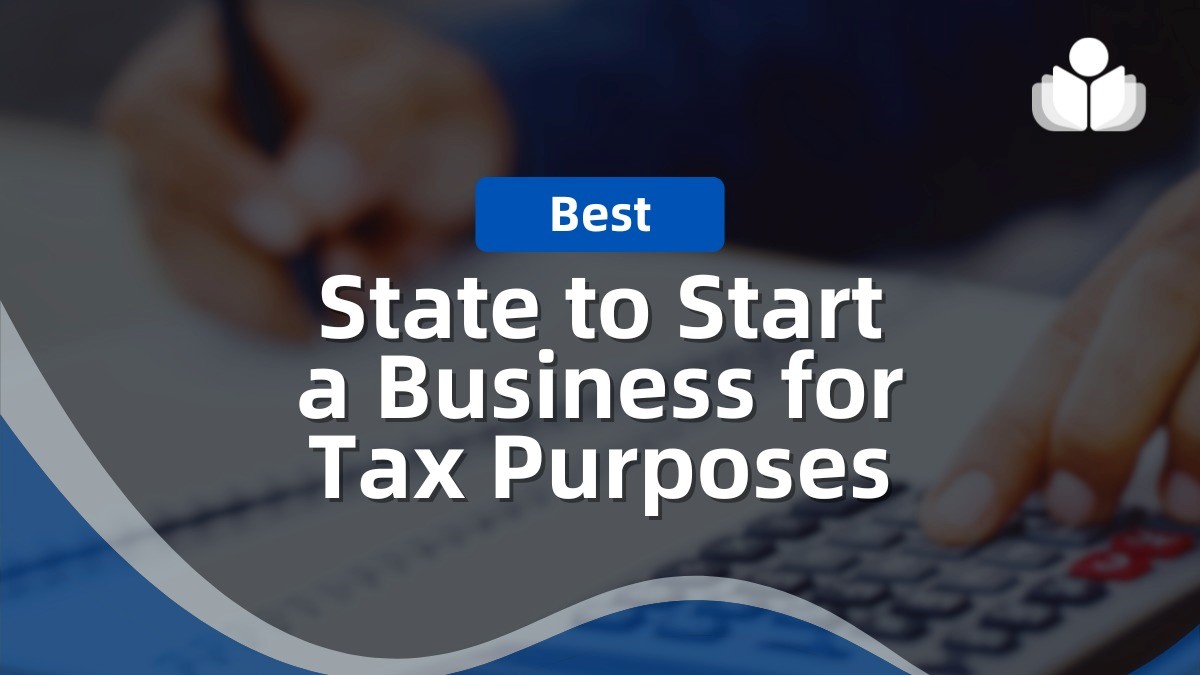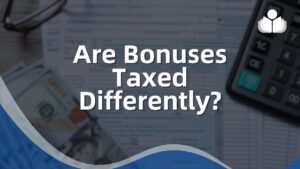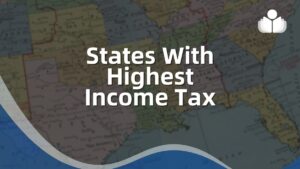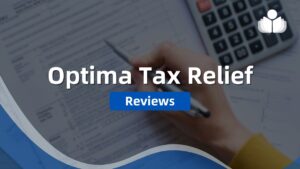Countless Americans are quitting their regular jobs to chase their dream of starting a business. They want more happiness, satisfaction, and maybe more money. But getting a business off the ground is challenging now when living costs are rising, and pay stays the same. One big choice that can make or break your business is picking the right state to begin in, like where you set up your LLC.
To help new business owners, Forbes Advisor ranked the top states to start a business in 2024. They looked at 18 key factors in five areas: business costs, business climate, economy, workforce, and access to money. These things play a big role in figuring out which states give new businesses the best chance to succeed.
Remember that these rankings are just a guide and don’t work for everyone. Business owners should think about their specific business type and what they need when picking a place to set up shop. A state’s ranking might change depending on the industry and each person’s situation.
Also, these rankings show things as they’re right now. To do well in the long run, you need to stay up-to-date on any changes in the economy and rules in the state you choose.
What Makes a State Tax-Friendly for Businesses?
When evaluating how tax-friendly a state is for businesses, several factors come into play. A state’s tax environment can significantly impact a business’s profitability, cash flow, and overall success. Here’s a breakdown of what makes a state tax-friendly for businesses:
Corporate Income Tax Rates
One of the most significant factors in determining a state’s tax friendliness is its corporate income tax rate. States with low or no corporate income tax are typically considered more favorable for businesses. For example, states like Wyoming, South Dakota, and Texas don’t impose a corporate income tax, which can lead to substantial savings for businesses operating within these states.
Related: The Ultimate Guide to Income Tax by State
State and Local Tax Burdens
Beyond corporate taxes, businesses also face various state and local taxes, such as property taxes, sales taxes, and excise taxes. A state with lower overall tax burdens will be more attractive to businesses. States that keep these taxes low while still providing essential services are often labeled as tax-friendly.
Sales Tax Rates
Sales tax can significantly affect businesses, especially those that sell directly to consumers. States with lower sales tax rates or exemptions on certain business-related purchases, tend to be more favorable for businesses. Some states also offer tax incentives or holidays that can further reduce the tax burden on businesses.
Tax Incentives and Credits
Many states offer tax incentives and credits to attract businesses, such as tax breaks for job creation, research and development, or capital investment. These incentives can significantly reduce the effective tax rate for businesses and make certain states more appealing for specific industries or types of businesses.
Stability and Predictability of Tax Policies
Businesses thrive in environments where tax policies are stable and predictable. States with a history of frequent tax changes or unpredictable fiscal policies can create uncertainty, making long-term planning difficult for businesses. States that maintain consistent tax policies provide a more secure environment for business operations.
Personal Income Tax Considerations
For small business owners, especially those structured as pass-through entities (like LLCs or S-Corps), personal income tax rates are also a crucial consideration. States with low or no personal income tax can be more attractive because the business income passed through to the owners will be taxed at a lower rate, if at all.
Ease of Compliance
The complexity of tax laws and the ease of compliance are also important factors. States that simplify tax filing processes and reduce the administrative burden on businesses are often more attractive to entrepreneurs. Streamlined tax systems with clear guidelines and efficient processes can save businesses time and money.
A state is considered tax-friendly for businesses when it offers low corporate and personal income tax rates, reasonable sales and local taxes, attractive tax incentives, stable tax policies, and a simplified compliance process. These factors together create an environment where businesses can operate more profitably and with greater certainty.
Top 10 States with the Lowest Business Tax Burden
For creating a business-friendly environment, some states stand out for their exceptionally low tax burdens. Here’s a look at the top states where businesses can thrive thanks to minimal taxes and favorable economic conditions.
Wyoming
- No Corporate or Personal Income Tax: Wyoming is one of the most tax-friendly states in the U.S., with no corporate income tax or personal income tax. This makes it an attractive destination for businesses of all sizes, allowing them to retain more of their profits and providing individual business owners with significant tax savings.
- Low Sales Tax and Favorable Business Climate: Wyoming also has a low sales tax rate of just 4%, which is lower than the national average. This adds to the state’s appeal, particularly for businesses involved in retail. Wyoming’s overall business climate is highly favorable, with minimal regulations and a strong focus on supporting entrepreneurial activity.
- Additional Benefits and Potential Drawbacks: Beyond taxes, Wyoming offers a stable economy, low operating costs, and easy access to natural resources. However, potential drawbacks include a smaller market size due to the state’s low population and limited access to large metropolitan areas, which could be challenging for businesses requiring a large customer base or significant infrastructure.
South Dakota
- No Corporate Income Tax or Personal Income Tax: Like Wyoming, South Dakota doesn’t impose a corporate income tax or a personal income tax, making it an ideal location for businesses looking to minimize their tax liabilities. This allows both businesses and their owners to enjoy a higher level of income retention.
- Sales Tax and Property Tax Rates: South Dakota has a moderate sales tax rate of 4.5%, which is slightly below the national average, and property taxes that are considered reasonable compared to other states. This combination of low taxes across the board contributes to South Dakota’s reputation as a business-friendly state.
- Business Incentives and Regulatory Environment: South Dakota’s regulatory environment is known for being straightforward and supportive of business operations. The state also offers various incentives for businesses, including grants and loans for job creation and expansion projects. However, like Wyoming, South Dakota’s smaller population could be a limitation for businesses that rely on a large consumer base.
Alaska
- No Statewide Sales Tax or Personal Income Tax: Alaska offers a unique tax environment with no statewide sales tax or personal income tax. This makes it an appealing location for businesses and individuals looking to reduce their tax burden significantly.
- Corporate Income Tax Rates and Natural Resource-Related Incentives: While Alaska has a corporate income tax, the state offsets this with generous incentives, particularly for businesses involved in natural resource extraction. These incentives can significantly reduce the effective tax rate for qualifying companies.
- Additional Considerations: Alaska’s remote location and harsh climate can be challenging for businesses, especially those dependent on supply chains and large workforces. However, for businesses in industries such as oil, gas, and fishing, the state’s tax advantages and resource-rich environment offer substantial benefits.
Florida
- No Personal Income Tax: Florida is well-known for not imposing a personal income tax, making it a highly attractive state for business owners. This benefit extends to all residents, increasing the state’s appeal as a place to live and work.
- Competitive Corporate Income Tax Rate and Low Sales Tax: Florida has a corporate income tax rate of 5.5%, which is competitive compared to other states. The state also maintains a relatively low sales tax rate of 6%, making it favorable for both businesses and consumers.
- Growing Economy and Business-Friendly Regulations: Florida’s economy is one of the fastest-growing in the nation, with a diverse range of industries, from tourism to technology. The state’s business-friendly regulations and supportive infrastructure further enhance its attractiveness. However, the state’s vulnerability to hurricanes and other natural disasters may be a concern for some businesses.
Montana
- No Statewide Sales Tax: Montana is unique in that it doesn’t impose a statewide sales tax, which can significantly reduce costs for businesses that sell goods and services directly to consumers. This absence of sales tax can also make Montana an appealing destination for consumers, which in turn benefits local businesses.
- Corporate Income Tax and Other Business Taxes: While Montana has a corporate income tax rate of 6.75%, it’s relatively moderate compared to other states with corporate taxes. The state also offers various tax credits and incentives aimed at encouraging investment in certain industries, such as renewable energy and manufacturing.
- Business Climate and Economic Considerations: Montana offers a stable business climate with low regulatory burdens and a focus on supporting small businesses. However, the state’s rural nature and relatively small population can be limiting factors for businesses that rely on large markets or urban infrastructure.
New Hampshire
- No Sales Tax or Personal Income Tax: New Hampshire is known for its absence of both sales tax and personal income tax, making it an extremely tax-friendly state for both businesses and residents. This can result in substantial savings for businesses, particularly those in retail and consumer services.
- Business Profits Tax and Business Enterprise Tax: While New Hampshire doesn’t have a corporate income tax per se, it does levy a Business Profits Tax (BPT) at a rate of 7.7% and a Business Enterprise Tax (BET) at 0.6%. These taxes apply to businesses with more than $50,000 in gross receipts. However, despite these taxes, New Hampshire’s overall tax burden remains lower than many other states.
- Advantages and Challenges: New Hampshire’s strategic location in New England, combined with its tax advantages, makes it an attractive location for businesses, especially those looking to serve markets in the Northeast. The state’s smaller size and population may pose challenges for businesses that require extensive infrastructure or large labor pools.
Nevada
- No Corporate or Personal Income Tax: Nevada is another state that doesn’t levy corporate or personal income taxes, making it highly attractive to businesses. This absence of income taxes allows businesses to reinvest more of their earnings and provides owners with greater personal financial benefits.
- High Sales Tax but Favorable Overall Tax Environment: While Nevada does have a higher sales tax rate, which can reach up to 8.375% in some areas, the overall tax environment remains favorable due to the absence of income taxes. For businesses, this trade-off is often worth it, especially in industries where sales tax impacts are less significant.
- Pro-Business Policies and Economic Incentives: Nevada is known for its pro-business policies, including economic incentives such as tax abatements and infrastructure grants. The state’s location, near major markets in California and the western U.S., also makes it a strategic choice for many businesses. However, the higher sales tax and some regional economic fluctuations could pose challenges depending on the industry.
Utah
- Low Corporate and Personal Income Taxes: Utah offers a flat corporate income tax rate of 4.85%, which is relatively low compared to other states. Utah has a flat personal income tax rate of 4.85%, making it attractive for business owners who also draw income from their companies.
- Favorable Business Environment: Utah is frequently ranked as one of the best states for business due to its strong economy, low unemployment rate, and business-friendly regulatory environment. The state offers various incentives, particularly in tech and manufacturing sectors, to attract and retain businesses.
- Economic Growth and Stability: Utah’s economy is one of the fastest-growing in the United States, driven by a diverse range of industries including technology, finance, and manufacturing. This growth, combined with a low tax burden, makes Utah an appealing state for businesses looking to scale.
Indiana
- Low Corporate Income Tax and Property Taxes: Indiana has gradually reduced its corporate income tax rate, which is currently set at 4.9%. The state also offers relatively low property taxes, which can be a significant cost-saving factor for businesses with substantial physical assets.
- Regulatory Environment and Workforce: Indiana is known for its business-friendly regulatory environment, with streamlined processes that make it easier to start and operate a business. The state also boasts a skilled workforce, particularly in manufacturing and logistics, which are key industries in the region.
- Strategic Location: Located in the Midwest, Indiana offers strategic advantages for businesses involved in distribution and logistics, with easy access to major markets across the United States. The combination of low taxes, a strong workforce, and a central location makes Indiana an attractive option for many types of businesses.
North Carolina
- Competitive Corporate Income Tax Rate: North Carolina offers one of the lowest corporate income tax rates in the country at 2.5%, making it highly attractive for businesses looking to minimize their tax burdens. The state also has a relatively low sales tax rate, which can further reduce overall costs.
- Strong Economy and Business Incentives: North Carolina’s economy is robust and diverse, with strong sectors in finance, technology, and manufacturing. The state offers various incentives to attract businesses, including tax credits for job creation and investments in economically distressed areas.
- Business-Friendly Regulations and Infrastructure: The state is known for its business-friendly regulatory environment, which includes streamlined permitting processes and support for small businesses. North Carolina has invested heavily in infrastructure, making it easier for businesses to operate and grow.
- Attractiveness to Skilled Workers: North Carolina’s growing economy and quality of life make it an attractive destination for skilled workers, which benefits businesses looking to tap into a strong talent pool.
States to Approach With Caution for Tax Purposes
California
California imposes high corporate (8.84%) and personal income taxes (up to 13.3%), along with a base sales tax of 7.25%, which can exceed 10% in some areas. Its complex regulations make it a costly state for businesses.
New York
New York has high corporate (6.5%) and personal income taxes (over 10%), plus additional fees like franchise taxes and MCTD surcharges. While the market is large, the tax burden can be prohibitive for many businesses.
New Jersey
New Jersey is known for its high property taxes and personal income tax rates (up to 10.75%). These costs can be challenging for small businesses and startups operating on tight margins.
Illinois
Illinois has a high corporate income tax rate of 9.5% and additional business levies. The state’s significant debt and economic challenges add to the uncertainty, making it a less stable environment for businesses.
Choosing the Right State for Your Business
Selecting the right state to establish or expand your business is a crucial decision that can significantly impact your success. Aligning your business type with the advantages offered by different states is key.
- Aligning Business Type with State Advantages: Your business model should guide your choice of state. For instance, a retail business might benefit from a state with no sales tax, like Montana, while a manufacturing company might prioritize states with favorable energy costs and tax incentives for production, such as Texas or Indiana.
- Long-Term Considerations: It’s important to think beyond immediate tax benefits and consider the long-term implications of your choice. This includes evaluating the state’s economic stability, potential tax changes, and infrastructure growth. A state with a strong economy and a business-friendly environment today might offer greater opportunities for expansion and sustainability in the future.
- Professional Advice: Given the complexities of tax laws and regulations, seeking professional advice is essential. Accountants, tax professionals, and legal advisors can provide insights into the nuances of state-specific taxes and regulations, helping you make an informed decision. They can also assist in anticipating potential legal and financial challenges, ensuring that your business is well-positioned for long-term success.
Choosing the right state for your business involves aligning your business type with state advantages, considering long-term growth and stability, and seeking professional advice to navigate the complexities of tax and regulatory environments.
Frequently Asked Questions
Conclusion
To wrap up, Wyoming, South Dakota, Alaska, and Florida stand out as some of the top spots to kick off a business when it comes to taxes. These states offer low or no corporate and personal income taxes, reasonable sales tax rates, and business-friendly environments. For companies looking to boost their profits by cutting down on taxes, these states give them a big financial edge.
But remember, while tax perks matter a lot, you need to weigh them against other things your business needs. This includes finding skilled workers, the size of your market, good roads and buildings, and special deals for your industry. If you pick a state just because of its tax breaks, you might miss out on other key things that help your business grow and last.
To make a smart choice, you need to think about what your business needs now and in the future. Talking to accountants, tax experts, and lawyers can give you the know-how to handle tricky state rules and set your business up for growth and profits. When you look at all these things, you can fine-tune your business plan making sure you win both now and down the road.
 Sections of this topic
Sections of this topic
















